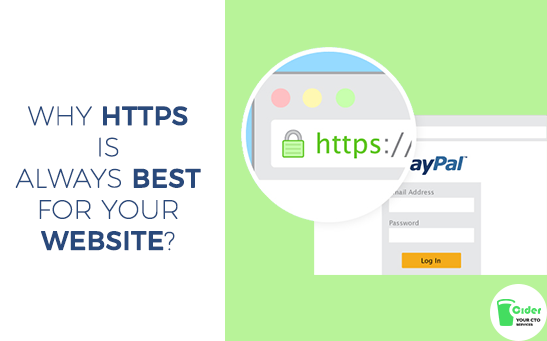SEO stands for search engine optimization, which highlights the benefit of long-term organic discovery by clients and ROI. According to recent research, startups are more likely to invest time and budget in SEO than most small to medium sized businesses, aka SMBs. Most SMBs don’t utilize long-term SEO, as only 8% of them hire an agency or an independent consultant to do this type of work. Although, most SMBs spend time and money to build up a business, they are not ready for SEO as a long-term investment since profitable results come slower. Maximize SEO as a business owner and understand what can be built in-house and what should undoubtedly be outsourced to experts.
AUDIT
Everything starts from the audit. At this stage, your website is analyzed as an integral part of your company’s marketing strategy, as the following is considered:
- The field your business is now in.
- Competitors’ activity and target audience. Your web presence should be competitive and addressed to a specific group of people.
- The region of promotion. For faster results, it is better to choose 1-2 regions.
- Website structure.
- Domain.
- Technical audit, including loading speed and mobile optimization.
- Content audit, including tags and titles, keywords and descriptions, and images optimization.
- Current website position, keywords, and their commercial value.
- Quality and quantity of backlinks.
This stage is essential because it determines a company’s next steps and prevents wasted time and increased labor costs. Once the audit is done, understand the current state of the website, its strengths and weaknesses.
Next, the actual work begins. Prepare for 1-2 months of preparatory work. During preparatory work, semantic kernel, website structure, and additional pages prototypes are created. Small but essential changes on the website are made. This ensures all services related to analytics are set up and ready to work.
There are three main SEO branches: off-site, on-site, and the most challenging one: technical SEO. If you build these branches at one time, the positive results in your search rankings will happen quickly.
TECHNICAL SEO
Technical SEO relates to all the SEO activities excluding content optimization and link building. In simple terms, it covers search engine requirements to improve crawling. Conditions are continually changing, and search engines are becoming more difficult to keep up with. So, we can say technical SEO is in a state of constant refinement.
Elements such as website speed can positively or negatively impact SEO performance. This is because of the strong connection between loading speed and Google rankings. So, the slower a website loads, the lower SEO performance is. This shouldn’t be a surprise for you. From the side of an average user, how long will you wait for the site to load? Google cares about its users and wants to show them the best search engine results pages (SERPs).
Here are a few actions you can do yourself:
- Keep your theme simple. Creativity is always welcomed, but keep the design minimal so you do not slow down your site with big images, videos and the like.
- Optimize your images. Yes, images can significantly slow down a page.
- Upgrade hosting. Look for an optimized speed server.
- Clean up your code. If you are not a programmer, hiring a coder will improve your site performance. A technical specialist will check it for errors and help to eliminate them.
Have you ensured your website is mobile-friendly? If no, the fact that mobile search accounts for 71% of total online time in the U.S. will be something to consider. The primary search index of a website should be mobile since top positions are given to sites with mobile-friendly content. Here is what you can do to improve your performance on mobile:
- Use accelerated mobile pages [AMP] markup. With the help of AMP, a duplicated layer of your content is optimized for all mobile devices.
- Implement Schema markup. This is a form of micro-data, which gives an enhanced description of your web page to Google and appears in search results.
- Web design should be responsive. This is the most efficient way to maximize end user’s experience while also minimizing HTML code on your end.
- Remove pop-ups from your mobile site. You can still run pop-ups on desktop view, but they’ll become less and less effective as more searches migrate to mobile.
Site architecture. Simply put, your website should be well-organized. This means designing your site so crawlers find and index your best and most relevant content consistently.
A technically optimized site is a must. Most sites will almost always have technical SEO to promote their web property. To lead the pack provide unique content. Fill the site with optimized special content to get ahead of top-ranking companies.
CONTENT IS KING
On-page SEO is primarily about what is written on website pages. Follow these tips to get more traffic to your site:
- Optimize it for relevant keywords. Use Google Keyword Planner. Pages shouldn’t be spammed with identical sets of words. Try to reach an ideal combination of text quantity and frequency of keywords used.
- Use SEO-friendly URLs. They should be short and have keywords.
- Use outbound links. Link website content to other pages with a similar topic to drive organic traffic and increase searches.
- Put social sharing buttons. This will make it easier for readers to share your website content and therefore increases the likelihood for natural backlinks.
- Post long content. It is no longer a secret that long-form content tends to rank higher than shorter content. BuzzSumo, a major content strategy platform, found that longer content tends to generate more social shares.
BACKLINKS, or OFF-PAGE SEO
Which store would you prefer to go to: the one your friend proposed or the one you found on the internet without any recommendations?
Natural links from relevant websites act as an independent “vote of confidence,” which helps search engines trust you more. The study carried out by Backlinko revealed the most important ranking factor is the number of different websites linking to your page. Here are some tips for you to follow:
- Backlinks should be from different domains. Domain diversity matters for rankings as a quality over quantity approach.
- Try to get links from authoritative websites. TechCrunch is better than somebody’s blog.
- Purchase legal backlinks. If you don’t want to be suspected in blackhat SEO and be banned for that from Google, be careful.
Enough was said about what you should DO. Now, let’s consider a few DON’Ts:
- Don’t go with vendors that say they can get you to the top of the ranks in 1 month. SEO requires ongoing investment, and nobody can guarantee you the first, second, or third place in searches even in 3 months.
- Black hat SEO. Don’t use spammy techniques. Google is smart, and the consequences of cheating towards fast results can be painful.
- Do not duplicate content. Remember two words: unique and original.
- Paid links. Yes, the process of getting natural backlinks isn’t easy, but it’s worth trying. Paid links will bring fast but temporary results.
I asked our lead SEO specialist here at Cidersoft, “What is crucial in SEO?” and “What is the most important to keep in mind?”. His response was, “It’s taking a proactive approach paired with the willingness to wait for your long-term investment to pay off.” And this is true. A complex approach, based on a developed strategy you follow step-by-step, not rushing and being patient, will bring your website to the top.
The question of handling the SEO development directly or hire an agency depends on how much mental and emotional bandwidth the company has. We would recommend hiring an agency for a couple of reasons:
- SEO is time-consuming. As a business owner, is incredibly hard to fully manage all SEO tasks, sales processes, documentation, etc. Focusing in this area of expertise will require core business operations to be sacrificed.
- You don’t want to waste extra money. Since the agency develops a strategy based on your financial capacity, you will be spared from unplanned expenses.
- Technical SEO. A business not in the technical sphere, will have a tough time managing this part without a solid technical background. That is why we highly recommend hiring a professional with expertise in this area.
Hopefully, everything written above made the overall picture of search engine optimization clearer and will help to improve overall site performance.
Cidersoft is a Software Development Company based in the heart of Silicon Valley. We combine business domain knowledge and technology expertise of more than 50 development studios spread around the world.
We help companies in developing an SEO strategy, taking into account the results they want to achieve and their financial capacity. Our team will help you in all technical aspects of SEO, starting from cleaning up the code you have and bringing it to the next level for Google crawlers. We also have content managers on staff, so you do not have to worry about writing unique content or obtaining backlinks.
Reach out to us for a FREE Quote!




